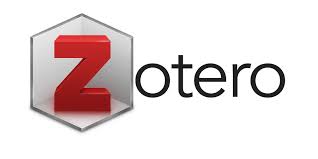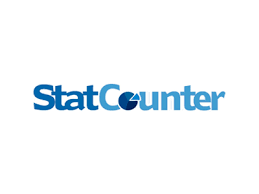Pengembangan E-LKPD Berbasis Google Sites Bercirikan Pendekatan Saintifik untuk Membangun Pemahaman Konsep Matriks
DOI:
https://doi.org/10.29240/ja.v4i2.5293Keywords:
Development, E-LKPD, Google sites, Scientific approachAbstract
One way to build understanding of the concept is to make innovations about E-LKPD. This study is aims to develop on process, the process result an E-LKPD based google sites on matrix material using a scientific approach to build a valid understanding of students' concepts. This study refers to one development model, namely the Four-D (4-D) is Define, Design, Development, and Disseminate. In this study, the researcher modified the Four-D with 3 stages, namely Define, Design, and Development. The results showed that the feasibility level of the E-LKPD based google sites on the matrix material based on the research of media experts all aspects got a total score of 101, so that when presented the validity of the media it got a value of 78.9% with the "Eligible" category. Furthermore, the feasibility of the E-LKPD based on google sites based on material experts got a total score of 209, so that when presented, media validity got one of the values of 84.2% with "Very Eligible" this category. The response from practitioners, namely the mathematics teacher, got an overall score of 146, so that if presented, it got a score of 86.90% in the "Very Eligible" category. The last trial on students of class X MIPA 2 a total of 9 people with a small group trial got a score of 325, so when presented it got a value of 90.27% with the "Very Eligible" category. This is the E-LKPD based on google sites using a scientific approach to class XI matrix material.
Downloads
References
Ainin, N., Hartono, W., & Aripin, J. (2020). Analisis kesalahan siswa dalam menyelesaikan soal matriks dan kaitannya dengan motivasi belajar matematika pada kelas xi. Journal of Lembaga Penelitian Universitas Swadaya Gunung Jati (UGJ), 7(2), 137–147.
Anam, K., & Yahya, M. S. (2021). Inovasi Guru dalam Pembelajaran Masa Pandemi Covid-19. JISIP (Jurnal Ilmu Sosial Dan Pendidikan), 5(3), 8–15. https://doi.org/10.36312/jisip.v5i3.2090
Anggraini, R., Wahyuni, S., & Lesmono, A. D. (2016). Pengembangan Lembar Kerja Siswa (Lks) Berbasis Keterampilan Proses Di Sman 4 Jember. Jurnal Pembelajaran Fisika, 4(4), 350–356.
Ardiansyah, S. (2020). Blog-Based Learning to Build Literacy Culture in Indonesia (Issue November). PT Bumi Aksara.
Boediono, U. H. (2009). Model Pembelajaran Menciptakan Proses Belajar Mengajar yang Kreatif dan Efektif. PT. Bumi Aksara.
Chairunnisa Inayatusufi, Hakim, L. El, & Sari, P. (2020). Peningkatan Kemampuan Pemahaman Konsep Matematis melalui Model Kooperatif Tipe Scramble dengan Pendekatan Kontekstual Pada Materi Segiempat dan Segitiga di Kelas VII. Jurnal Riset Pendidikan Matematika Jakarta, 2(2), 28–37. https://doi.org/10.21009/jrpmj.v2i1.15118
Fitriani, M. Hasan, dan M. (2016). Pengembangan Lembar Kegiatan Peserta Didik (LKPD) Berbasis Masalah Untuk Meningkatkan Pemahaman Konsep dan Aktivitas Belajar Peserta Didik Pada Materi Larutan Penyangga. Journal of Pendidikan Sains Indonesia, 04(01), 26–42.
Ike Ismawati, Nila Mutia, Nurhikmah Fitriani, S. M. (2021). Pengembangan Media Pembelajaran Fisika Berbasis Web Menggunakan Google Sites pada Materi Gelombang Bunyi. Journal of Ilmiah Mahasiswa Pendidikan Fisika, 2(2).
Indrayana, B., & Sadikin, A. (2020). Penerapan E-Learning Di Era Revolusi Industri 4.0 Untuk Menekan Penyebaran Covid-19. Indonesian Journal of Sport Science and Coaching, 2(1), 46–55. https://doi.org/10.22437/ijssc.v2i1.9847
Khabib, M., Nugroho, C., & Hendrastomo, G. (2021). Pengembangan Media Pembelajaran berbasis Google Sites pada Mata Pelajaran Sosiologi kelas X. Jurnal Pendidikan Sosiologi Dan Humaniora, 12(2), 59–70. https://jurnal.untan.ac.id/index.php/JPSH/article/view/48934
Krismantono, R. R., Studi, P., Matematika, P., & Tamansiswa, U. S. (2017). Analisis kesalahan dalam menyelesaikan soal matematika. Journal of Prosiding Seminar Nasional Etnomatnesia, 177–181.
Ningsih, F., Putra, A., & Ulandari, N. (2019). Penerapan Pendekatan Saintifik Berbantuan Geogebra dalam Upaya Meningkatkan Pemahaman Konsep Matematis Siswa A . Pendahuluan Pendidikan merupakan usaha dan upaya pendidik yang bekerja secara interaktif dengan peserta didik untuk meningkatkan , mengembangk. Journal of Matematika Dan Pendidikan Matematika, 10(2), 180–194.
Saregar, P. &. (2019). Pengembangan Lembar Kerja Peserta Didik (LKPD) Berbasis Scaffoding Untuk Melatih Pemahaman Konsep. Indonesian Journal Of Science And Mathematic Education, 2(1).
Septian, R., Irianto, S., Andriani, A., & Purwokerto, U. M. (2019). MATEMATIKA BERBASIS MODEL REALISTIC MATHEMATICS. 5(1), 59–67.
Setiawan, A. R. (2017). Penerapan Pendekatan Saintifik untuk Melatihkan Literasi Saintifik Dalam Domain Kompetensi Pada Topik Gerak Lurus di Sekolah Menengah Pertama. Journal of Matematika Dan Pendidikan Matematika, 110265, 110493.
Setiawan, A. R. (2019). Penerapan Pendekatan Saintifik dalam Pembelajaran Biologi sebagai Upaya Melatih Literasi Saintifik. Seminar Nasional Biologi “Inovasi Penelitian Dan Pendidikan Biologi II (IP2B III) 2019,†140–145.
Sudjana, N. (2011). Penilaian Proses Hasil Belajar Mengajar. Remaja Rosdakarya.
Suyitno & Amin, D. (1997). Dasar dan Proses Pembelajaran Matematika. FMIPA Unnes.
Taufik, M., Sutrio, S., Ayub, S., Sahidu, . (2018). Pelatihan Media Pembelajaran Berbasis Web Kepada Guru IPA SMP Kota Mataram. Journal of Pendidikan Dan Pengabdian Masyarakat, 1(1).
Wandari, A. (2018). Pengembangan Lembar Kerja Peserta Didik ( LKPD ) pada Materi Geometri Berbasis Budaya Jambi untuk Meningkatkan Kreativitas Siswa. 1(November), 47–55.
Downloads
Published
Issue
Section
Citation Check
License
Authors who publish with ARITHMETIC: Academic Journal of Math agree to the following terms:
- Authors retain copyright and grant the journal right of first publication with the work simultaneously licensed under a Creative Commons Attribution-NonCommercial-ShareAlike 4.0 International License (CC BY-NC-SA 4.0) that allows others to share the work with an acknowledgment of the work's authorship and initial publication in this journal.
- Authors are able to enter into separate, additional contractual arrangements for the non-exclusive distribution of the journal's published version of the work (e.g., post it to an institutional repository or publish it in a book), with an acknowledgment of its initial publication in this journal.
- Authors are permitted and encouraged to post their work online (e.g., in institutional repositories or on their website) prior to and during the submission process, as it can lead to productive exchanges, as well as earlier and greater citation of published work (See The Effect of Open Access).







